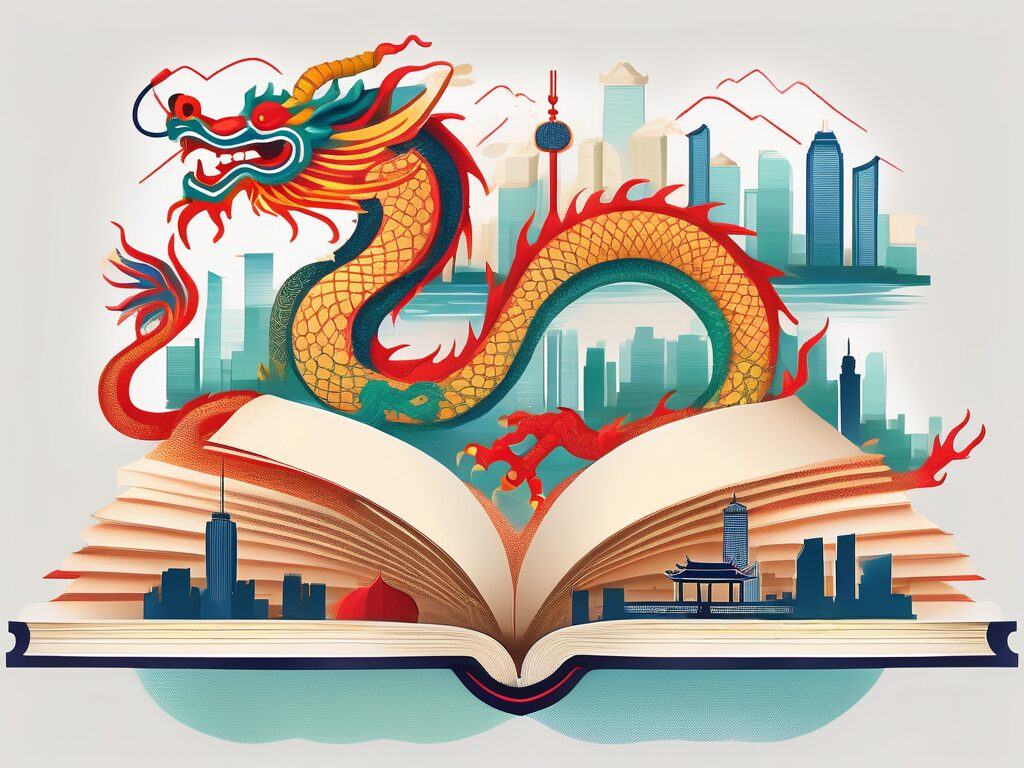Hong Kong, a vibrant city known for its cultural diversity and international influence, offers an exciting backdrop for intercultural education. For educators looking to enhance their teaching skills and cultural understanding, a Postgraduate Certificate in Education (PGCE) can be a valuable tool. This article will delve into five key aspects of intercultural education in Hong Kong, providing insights for those considering a PGCE.
1. Understanding Hong Kong’s Cultural Landscape
The Melting Pot of Cultures
Hong Kong is a melting pot of cultures, with a rich history of international influence. This diverse city is home to a myriad of cultures, languages, and traditions, making it an ideal location for intercultural education. From the bustling streets of Kowloon to the tranquil islands of the New Territories, the city offers a unique blend of Eastern and Western influences.
As an educator, understanding this cultural landscape is crucial. A PGCE can provide you with the necessary knowledge and skills to navigate this diversity, helping you to create an inclusive and engaging learning environment for your students.
Language Diversity
Language is a key aspect of Hong Kong’s cultural diversity. While Cantonese is the most widely spoken language, English and Mandarin are also prevalent. This multilingual environment can present both challenges and opportunities for educators.
With a PGCE, you can learn strategies for teaching in a multilingual classroom, helping to ensure that all students can participate and succeed. This might involve using visual aids, incorporating technology, or employing cooperative learning strategies.
2. The Role of a PGCE in Intercultural Education
Building Cultural Competence
A PGCE can help you build cultural competence, a critical skill for educators in diverse settings. Cultural competence involves understanding and respecting cultural differences, and using this understanding to inform teaching practices.
Through a PGCE, you can gain a deeper understanding of different cultures, learn how to communicate effectively across cultural boundaries, and develop strategies for promoting cultural understanding among your students.
Developing Inclusive Teaching Practices
Inclusive teaching practices are essential for intercultural education. These practices ensure that all students, regardless of their cultural background, feel valued and supported in the classroom.
A PGCE can provide you with the tools and strategies to create an inclusive classroom. This might involve adapting your teaching methods to cater to different learning styles, incorporating culturally relevant materials, or creating a classroom environment that celebrates diversity.
3. The Benefits of Intercultural Education
Preparing Students for a Globalised World
Intercultural education can prepare students for a globalised world. By learning about different cultures, students can develop a global perspective, enhancing their understanding of the world and their place in it.
As an educator, you play a crucial role in this process. With a PGCE, you can equip your students with the knowledge and skills they need to navigate cultural differences, fostering global citizens who are equipped to thrive in an increasingly interconnected world.
Promoting Empathy and Understanding
Intercultural education can also promote empathy and understanding. By exploring different cultures, students can learn to appreciate diversity, challenge stereotypes, and build empathy for others.
Through a PGCE, you can learn how to facilitate these important conversations, helping your students to develop a deeper understanding of the world and the people in it.
4. Challenges of Intercultural Education
Overcoming Language Barriers
Language barriers can be a significant challenge in intercultural education. In a multilingual classroom, ensuring that all students can understand and engage with the material can be difficult.
However, with a PGCE, you can learn strategies for overcoming these barriers. This might involve using translation tools, incorporating visual aids, or employing cooperative learning strategies.
Addressing Cultural Misunderstandings
Cultural misunderstandings can also pose challenges in intercultural education. These misunderstandings can lead to confusion, conflict, or exclusion.
With a PGCE, you can learn how to address these misunderstandings, fostering a classroom environment that is respectful and inclusive. This might involve facilitating open discussions, providing cultural education, or promoting empathy and understanding.
5. The Future of Intercultural Education in Hong Kong
Increasing Cultural Diversity
As Hong Kong continues to grow and evolve, its cultural diversity is set to increase. This will present new opportunities and challenges for educators, making intercultural education more important than ever.
With a PGCE, you can be at the forefront of this evolution, helping to shape the future of education in Hong Kong. By developing your cultural competence and inclusive teaching practices, you can contribute to a more diverse, inclusive, and understanding society.
Embracing Technology in Education
Technology is playing an increasingly important role in education. From online learning platforms to digital resources, technology can enhance learning and make it more accessible.
With a PGCE, you can learn how to incorporate technology into your teaching, helping to engage students and facilitate intercultural learning. Whether it’s using online resources to explore different cultures, or employing digital tools to overcome language barriers, technology can be a powerful tool in intercultural education.
In conclusion, a PGCE can be a valuable tool for educators in Hong Kong, providing the knowledge and skills needed to navigate the city’s cultural diversity. By understanding the cultural landscape, building cultural competence, and developing inclusive teaching practices, you can unlock the potential of intercultural education and make a positive impact on your students and the wider community.
Advance Your Teaching Career with International Qualifications
As you strive to embrace the cultural diversity of Hong Kong and enrich your intercultural education practices, The IQTS at UWE invites you to take the next step in your professional journey. Our International Qualified Teacher Status (iQTS) programme is designed to elevate your teaching credentials, offering a pathway to overcome the barriers of strict qualification requirements and to significantly boost your career progression. Join a community that reduces professional isolation by 300%, deepens your understanding of global education systems, and provides flexible online study options to balance your work-life commitments. Make Your Next Step towards achieving a Level 7 qualification that not only enhances your professional development but also prepares you for a thriving international teaching career.

